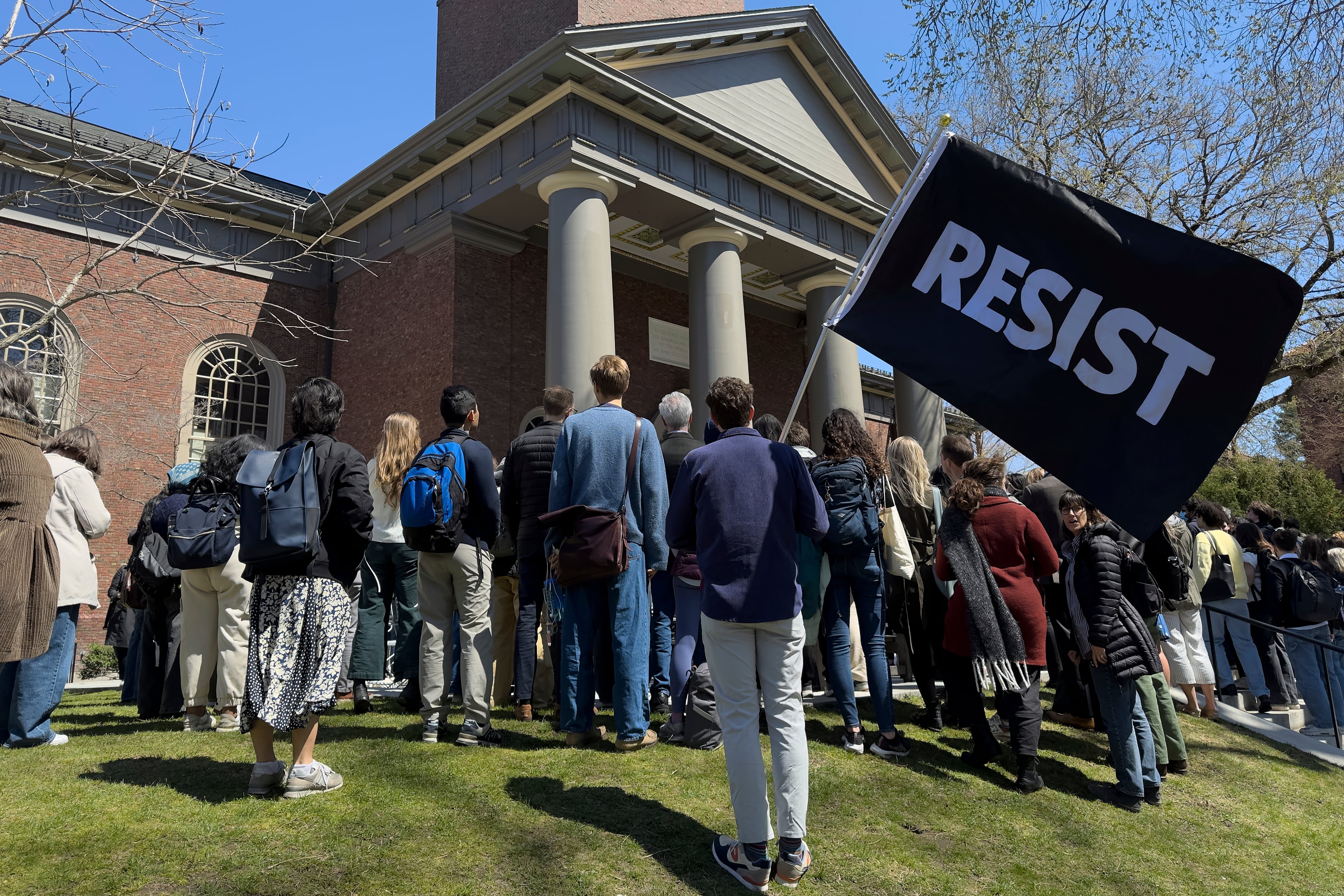When Heather Gray Blalock learned Thursday of the suicide bombing attacks outside the Kabul airport in Afghanistan that killed 13 U.S. service members, “it brought on a fresh grief wave. … Far too close to home.”
Her husband, Air Force Maj. David Gray, was killed by a suicide bomb attack in Afghanistan nine years ago.
“More Gold Star families. My heart just breaks thinking of their pain. …
“But we can take heart that they died as heroes … rendering aid in one of the most tragic humanitarian crises, probably ever.”
She said the country “must be committed to helping the innocent ones who deserve to get out, those who face even greater risk if they stay. I’m praying for the situation there as much as I’ve prayed for anything before.”
Blalock is now wearing her late husband’s dog tags again, for the first time in many years. “Feeling them clank against my chest reminds me to pray for our troops deployed there right now and for the people they are risking their lives to save,” she said.
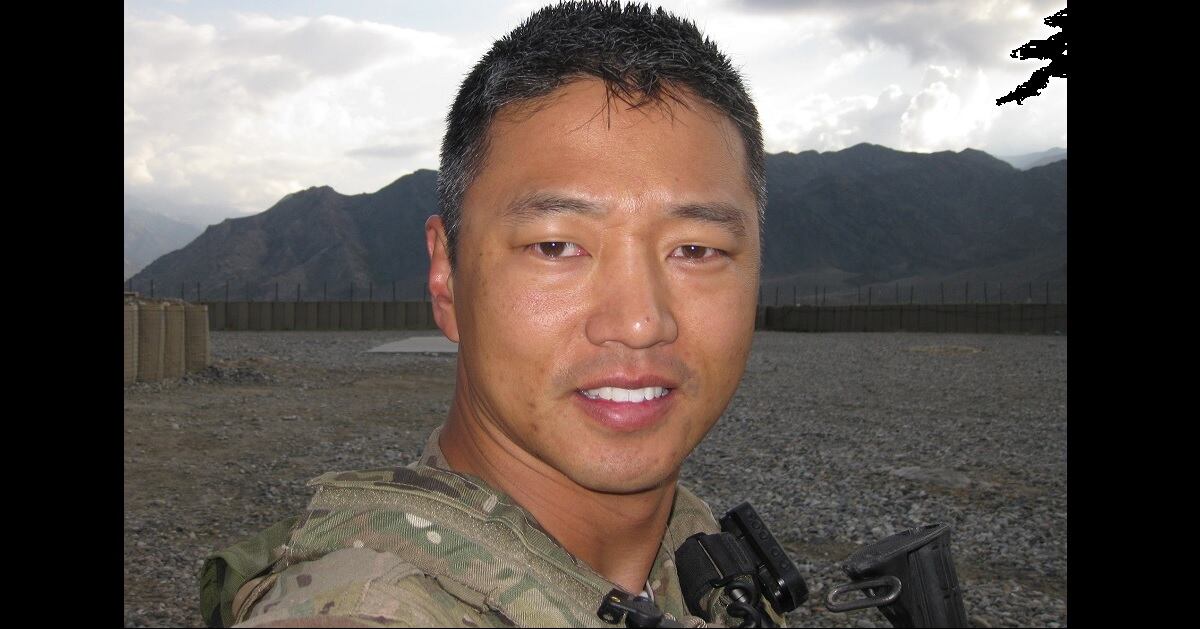
“We knew this wasn’t going to be an easy process and risk was high. Just as the risk was high when my husband deployed and didn’t return,” she said.
As David, an air liaison officer and flight commander for the Fort Carson-based 13th Air Support Operations Squadron, was preparing to deploy to Afghanistan in 2012, Heather learned of an attack on an airport near where he was heading. “I remember crying in his arms, saying, “It is counterintuitive to go into the fray. You know that this is where they are and where the danger is, and yet that is exactly where you are about to go. I just don’t understand.’
“He said, ‘Heather, that is their way of life, and it can’t be their way of life any more. I want to do what I can to help the people so that’s not their way of life any more.’ "
Maj. David Gray was killed Aug. 8, 2012.
“Just knowing that he had such conviction, that he was willing to go into harm’s way with the hope of providing a better life for the Afghan people, is what really carries me when I start to get depressed when I see all of this,” Blalock said, in an interview with Military Times about the collapse of that country.
“For a while, there were girls who got to go to school. For a while, there were people like my husband who made a difference, and hopefully there will be again. … There were differences that were made, even if just one life or two lives, or however many, there were differences that were made.”
RELATED

And that is also the heart of the message she is conveying to her children, and to others who ask questions. She’s looking at it from his perspective. He loved the military and the camaraderie, and also wanted to serve so that those who didn’t feel called to do so didn’t have to, she said.
The week leading up to the collapse of Afghanistan had already been difficult for Blalock and her family, beginning with the ninth anniversary of Gray’s death on Aug. 8. Their wedding anniversary was Aug. 11, and David’s birthday was Aug. 15. In the midst of that was Heather’s birthday on Aug. 10 — the anniversary of the day of the dignified transfer at Dover Air Force Base.
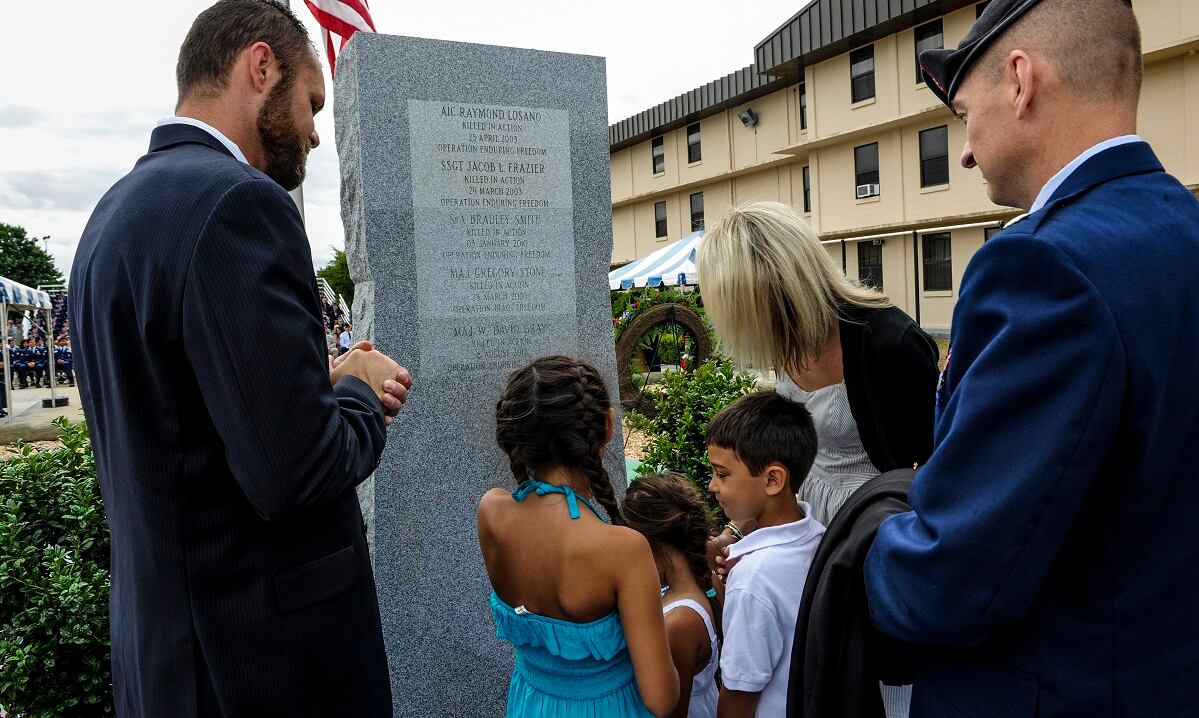
“It was already an emotional week, to say the least, and then to see all of this has just brought up a lot of emotions again,” said Blalock, who has remarried. “That week of remembrances and things sort of culminated with everything that happened in Afghanistan. … We were in the middle of remembering David in the special way that we do, along with his comrades who are so good about still doing memorials, even if they’re on Zoom. Just getting together to remember his sacrifice.”
Gray’s tactical air control party comrades are intentional about that remembrance and are an important part of the lives of Blalock and her family. Remembrance is important, because it’s the way their legacy continues, Blalock said. It’s helpful for her in her own grief and well-being, but their legacy can inspire those in the future who may not have had the opportunity to know that person.
The heartbreak of the collapse in Afghanistan affects many more people beyond their family, and in many different ways. “It’s hard on all of us. I don’t want to make it about us, because it’s so much bigger than that. My heart breaks for the Afghan people, and my heart breaks for our service members,” said Blalock, who is concerned about triggers of post-traumatic stress for service members and veterans. She was also worried about families of the service members who are deployed on the risky mission.
“I can’t tell you how many times this week, for more reasons than how Afghanistan is playing out right now, but [also] because of the nature of the week we’ve had, how many times I’ve just wanted to talk to David,” she said, “because he was so good at putting things in perspective. …
“I’ve been trying to go back to those things that I know that he would want us to do. Putting things into perspective. That the military does what they’re told to do and they do it with professionalism, they do it with honor, with integrity and to the best of their ability, for better or worse, however that plays out. They do it with heartfelt conviction.”
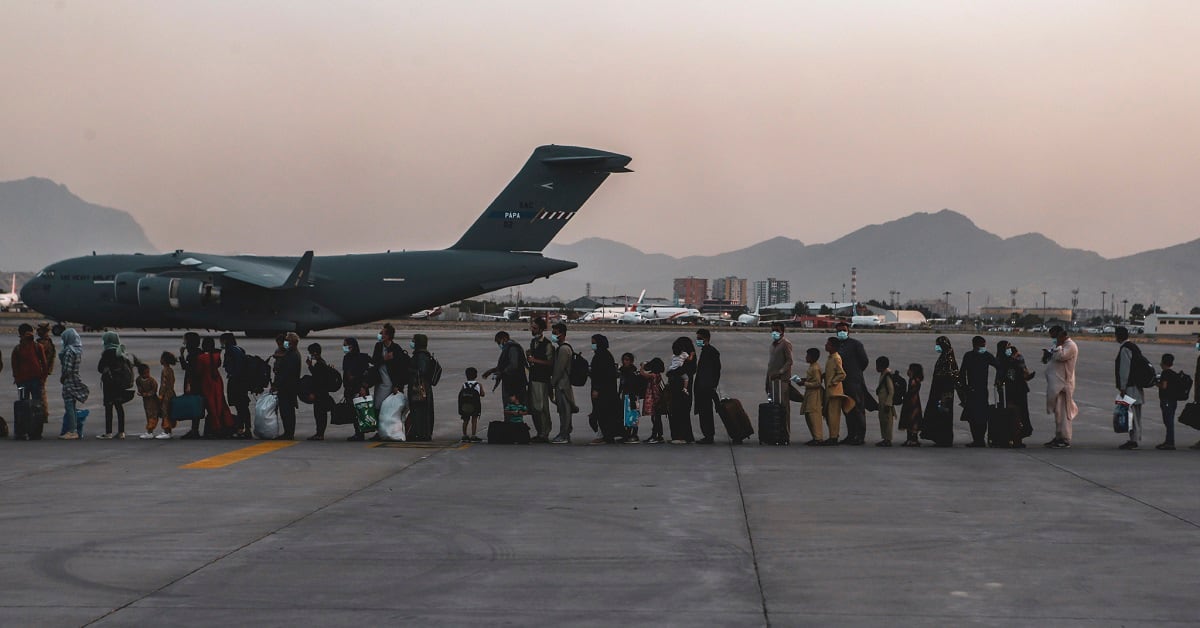
For those who have lost a family member and are trying to process through all of this, she said, it is really important to focus on “the fervor and the commitment and conviction that their family members no doubt had for the mission, and for the military as a whole.
“It’s so important that we remember the good. That we remember the honor and the sacrifice and that we don’t give any room for doubt to creep in that could tarnish their memory, or somehow buy into the notion that something was in vain.”
‘Do you think he died in vain?’
After the collapse of Afghanistan, someone asked Heather Blalock, “Do you feel like your husband’s death was in vain?”
“At first I thought, ‘I can’t believe you just asked me that question,’” she said.
“Then, I was really glad that he did. I was able to say, no, I don’t feel his death is in vain, because I know that he served with conviction that what he was doing was the right thing, and that he was where he was supposed to be, and that we were doing what we need to be doing over there. Knowing his conviction and his heart for what was going on, he didn’t feel like that, so I’m going to go with what I know David would have felt.”
She encourages Gold Star families to extend grace to well-meaning people. “It’s a sensitive subject for us. I think most people know that. I like to give people the benefit of the doubt because I think most of them are well-intended. So, I want to extend grace if people don’t know how to ask the right questions.”
Emotions have been “all over the place” since the scenes of people crowding at the airport began unfolding in the middle of August, Blalock said. “There’s going to be anger, there’s going to be frustration, lots of frustration. But I feel like the undercurrent to all that is a sadness. Sadness can very easily take people into a dark place. So, it’s really important that we undergird one another with love and support, and [to understand] those emotions are going to be all over the spectrum, and probably not in the right order, in the right time, or the right place.”
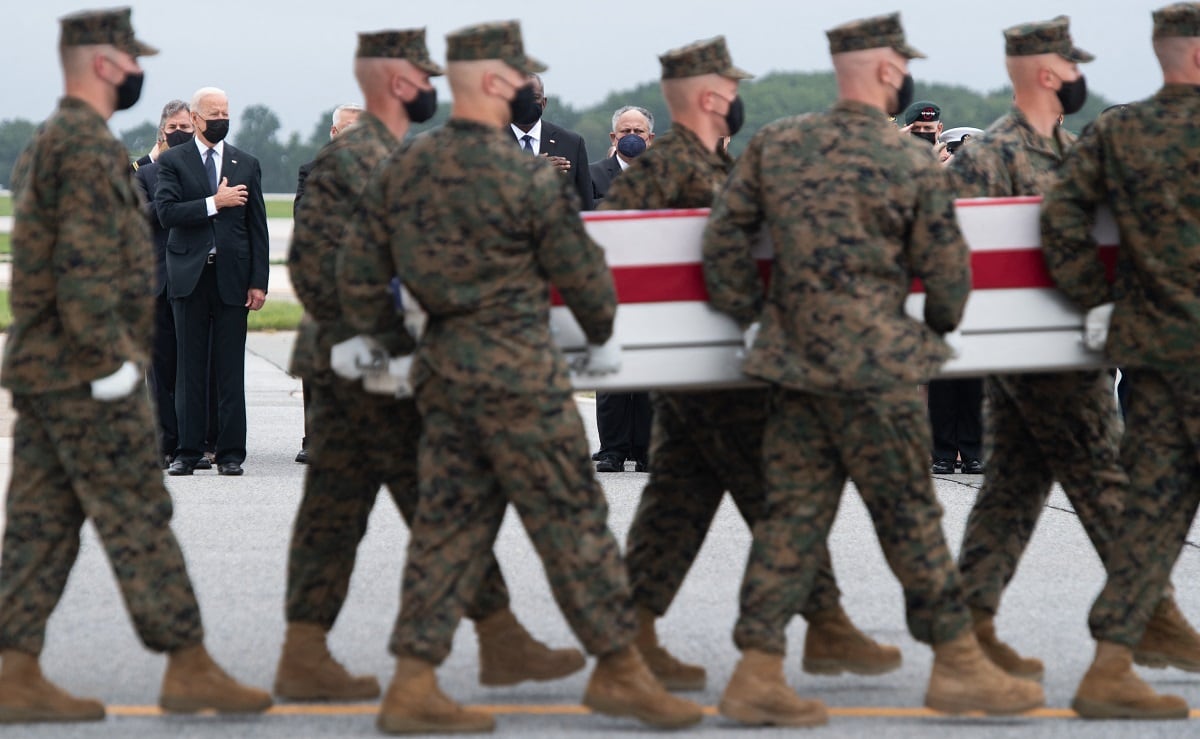
As a long-time part of the military family, seeing the people clinging to the Air Force plane in the early days of the evacuation, she’s thought about the crew members on the plane and those on the ground, “having to turn people away when you’re just so conflicted yourself. That’s really where my heart breaks. If we could, we would save all the people.”
She has been happily surprised by some feelings, though: “This overwhelming sense of pride, and pride that I was part of the military. I expected the sadness, and I expected the frustration and whatnot, but I have been happily surprised that I haven’t experienced any bitterness.”
Talking to her children
The Gray’s youngest child, Ava, was just 4 years old when her father died, and she has few memories of him. “That has always bothered her,” Blalock said, “and she’s a little bit jealous of her other siblings who have more memories with him than she does.”
One of the ways the inquisitive Ava, who just turned 13, compensates for that lack of memories is by asking questions. Her mother and siblings tell stories and reminisce about her dad, Blalock said. In particular, Blalock said, she talks about “how I think he would have handled everything that is going on now.”
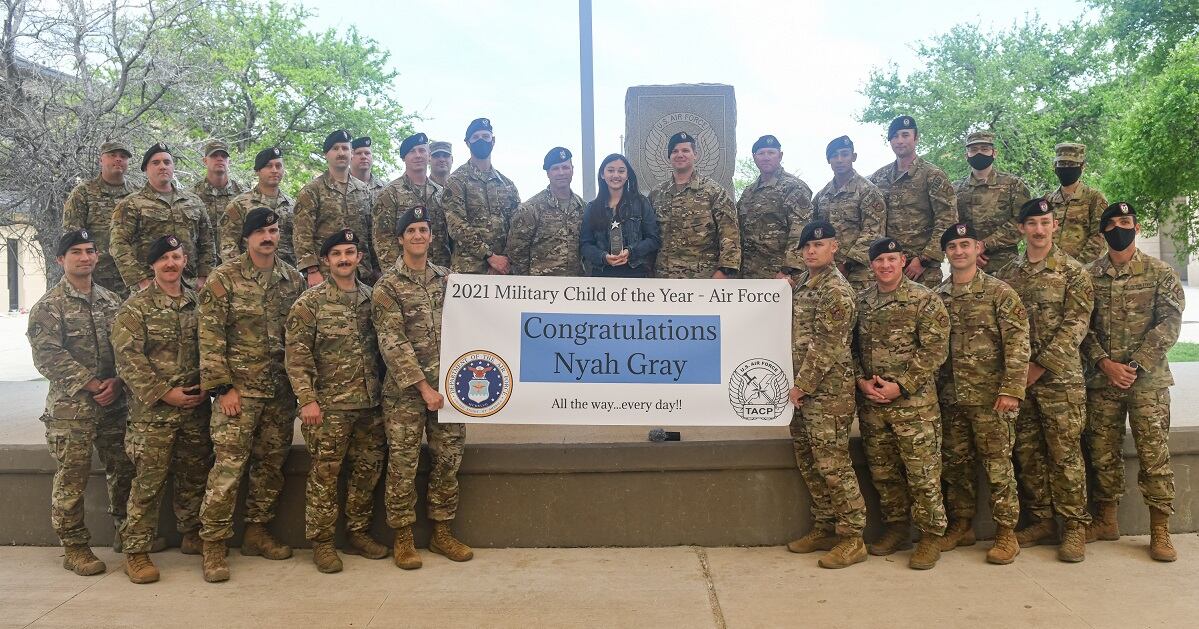
Their family is a blended family, with her three teenagers and her new husband’s three teenagers, and that family has been a blessing, Blalock said. Four years after David died, Heather married into another Air Force family and her husband, Col. Jack Blalock, retired a year ago. Having a spouse who understands grief and is truly supportive is a blessing, Heather Blalock said.
“My stepchildren lost their mother to cancer, and so we have a lot of experience with grief in our household,” Blalock said. “One of the ways that we’ve tried to work through that over the years is by being really intentional about remembrance, and being open about always being allowed to ask questions, being allowed to remember at any point, at any time.”
She has been proud to see that her children’s biggest concern is the humanitarian crisis that is happening in Afghanistan, and asking how they can others who are less fortunate. They’ve been having discussions about the importance of caring for others’ needs.
Nyah Gray, 17, encourages other children to ask questions to learn more about what’s going on. “It’s hard to hear all these things, but in the end it’s better to know and to start developing ideas and understanding of what’s going on, than to be in the dark and have the serious parts of it thrown at you,” she said.
RELATED
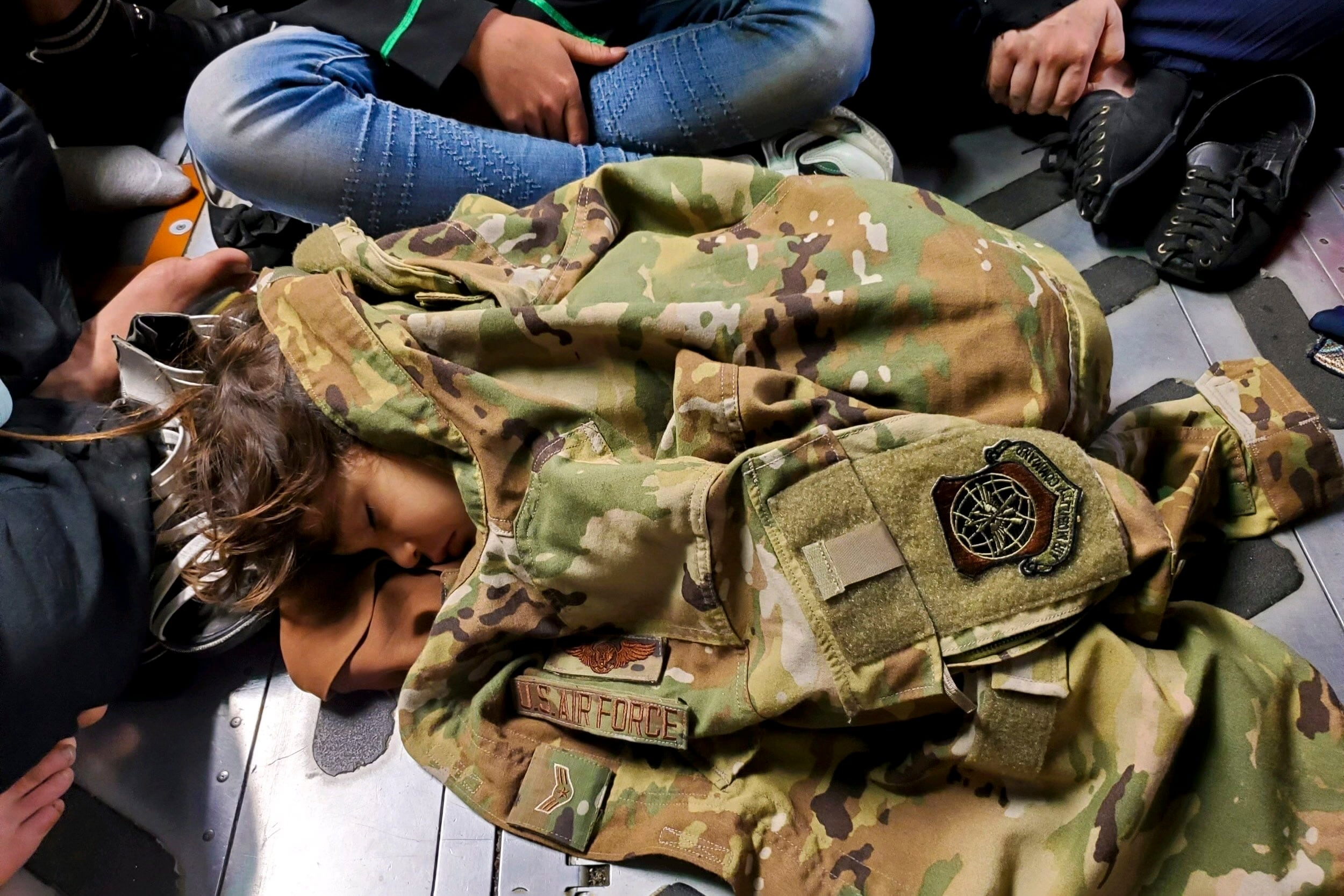
A ray of hope
Blalock was listening to a National Public Radio broadcast the week after the collapse of Afghanistan, and heard about an interpreter trying to get out. It turned out to be her late husband’s interpreter, who was with him when he died. She got contact information for the interpreter, then contacted her friend, retired Army Capt. Florent “Flo” Groberg, who received the Medal of Honor for his heroism in the battle in which David Gray died.
Groberg “then worked tirelessly to get him and his family out,” Blalock said. “I’ve been in communication with them now and hope to one day meet the family.
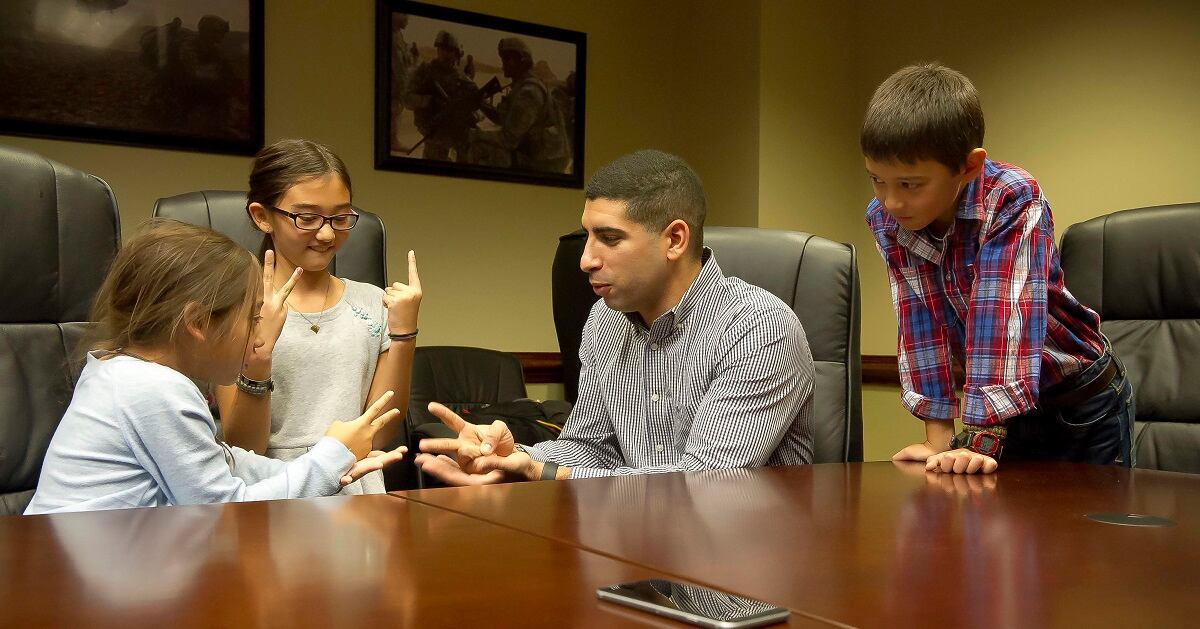
“There are so many more like him that haven’t gotten out and so many working to help! For military families, at least for me and many of my friends, this is the heart of the mission of the last 20 years… helping the Afghan people who face oppression and worse. "
The letter that lives on
Blalock draws strength from a letter she received unexpectedly from David on the day of his funeral. The two of them had been working together writing a devotional book for military couples, helping them use the lost art of letter writing during deployments. Gray’s book, “Faith, Hope, Love and Deployment,” was published by ACU Press in 2014.
After she sent him a chapter on patriotism for his review, he had written a letter answering the question of why he was willing to lay his life on the line in defense of his country.
The day of the funeral, she said, “was a day I was not going to get out of bed.
“Then one of my friends came upstairs and put the mail on the bed, and there it was,” she said. His words, and the scripture he quoted, “Here I am Lord. Send me” told her once again he knew his purpose. “He knew he was where he was supposed to be. He was willing to do whatever he needed to do,” she said.
“It gave me peace. I knew that it wasn’t in vain, that it wasn’t senseless.
“I got up and got dressed. I went to the funeral, and read his letter and spoke at the funeral,” Blalock said.
Ironically, President Joe Biden quoted the same scripture in his address on Aug. 26, following the suicide bombing attack.
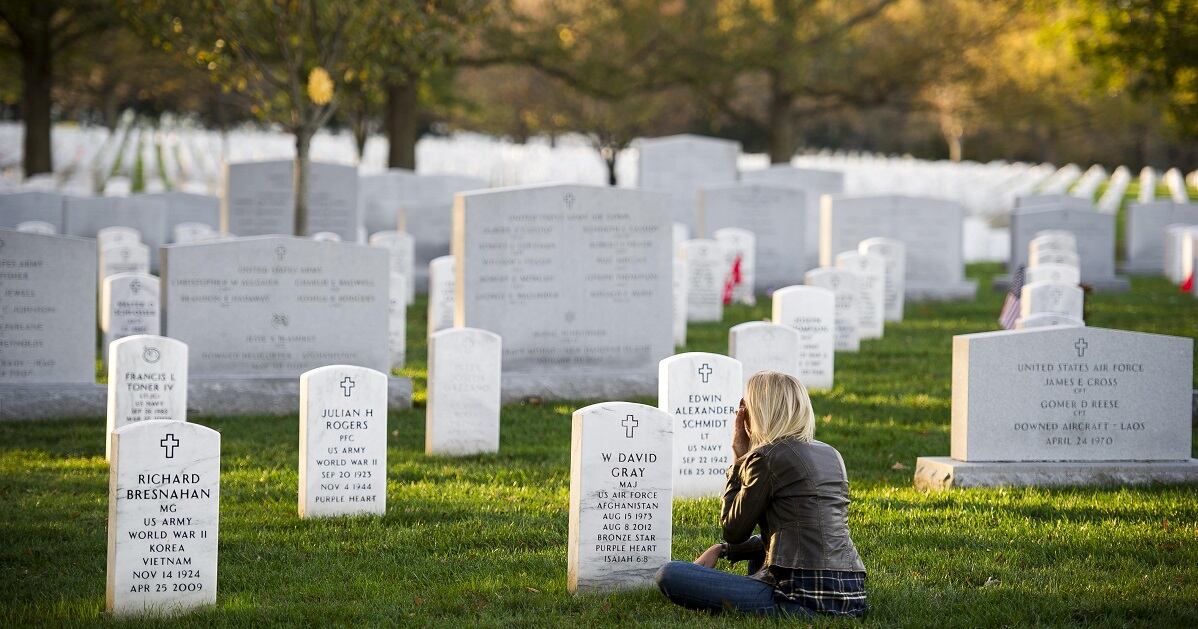
In the letter, dated July 29, 2012, David wrote that initially his reason was “a sense of duty to serve,” but had become more than that.
“Then [it] grew into a sense of giving back to the community that has given me so much. Now it has grown into a sense of obligation. … To my country. To you… to the kiddos and our God.”
“All of this comes back when I think of everything that’s going on now,” Blalock said. “It’s been our whole lives. All of that is tied up in what’s happening right now.”
Among the resources for Gold Star families are the Tragedy Assistance Program for Survivors, www.taps.org, and available 24/7 at 800.959.8277; and MilitaryOneSource.mil, and available 24/7 at 800.342.9647.
Karen has covered military families, quality of life and consumer issues for Military Times for more than 30 years, and is co-author of a chapter on media coverage of military families in the book "A Battle Plan for Supporting Military Families." She previously worked for newspapers in Guam, Norfolk, Jacksonville, Fla., and Athens, Ga.



